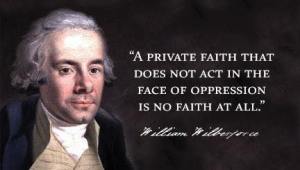The link is here.
Having given that, Doug Wilson’s entire post is below:
7 Questions for Those Who Want Money for People With Minds That Hate . . .
Let me get this straight.
1. You are the group that wants drivers working for FedEx and UPS to be unknowingly carrying around boxes with baby parts in them, babies who were killed for the sake of those parts, AND you want to be the enlightened, progressive group?
2. You are the party that wants lab workers to dump baby parts into pie plates, in order to sort through them carefully looking for the valuable bits, AND you want to be the liberals?
3. You are the faction who wants to keep us from showing mothers an ultrasound of their child, in order to keep that child alive, and you want to prevent those same mothers from seeing how you use the ultrasound (to avoid damaging the product), AND you want to be known as the ones in favor of the free flow of information?
4. You want to tell one group of people that we are just dealing with nondescript tissue and such, and you want to tell another group that you have livers, hearts, lungs, and limbs for sale, AND you want to be the party of intellectual consistency and forthrightness?
5. You want to be known as the group that thinks #blacklivesmatter, while you are the leading wholesaler of black people in America today, only you kill them first, with your prices much lower than 19th century prices were, AND you want to be the enlightened ones who are showing the way for us on matters of racial reconciliation?
6. You are the party of women’s rights and you agitate for protection for women, and yet with the exclamation #anotherboy, you reveal that you do in fact know that half of the bodies you are taking to market are female bodies, AND you want to be the feminists?
7. You are the group that has T-shirts reading “care no matter what,” and at the same time you are the merchants who fatten children for market, since 20 weekers bringing in more than the younger ones, AND you don’t want to be the witches straight out of medieval tales?
All I can tell is brother you have to wait.

